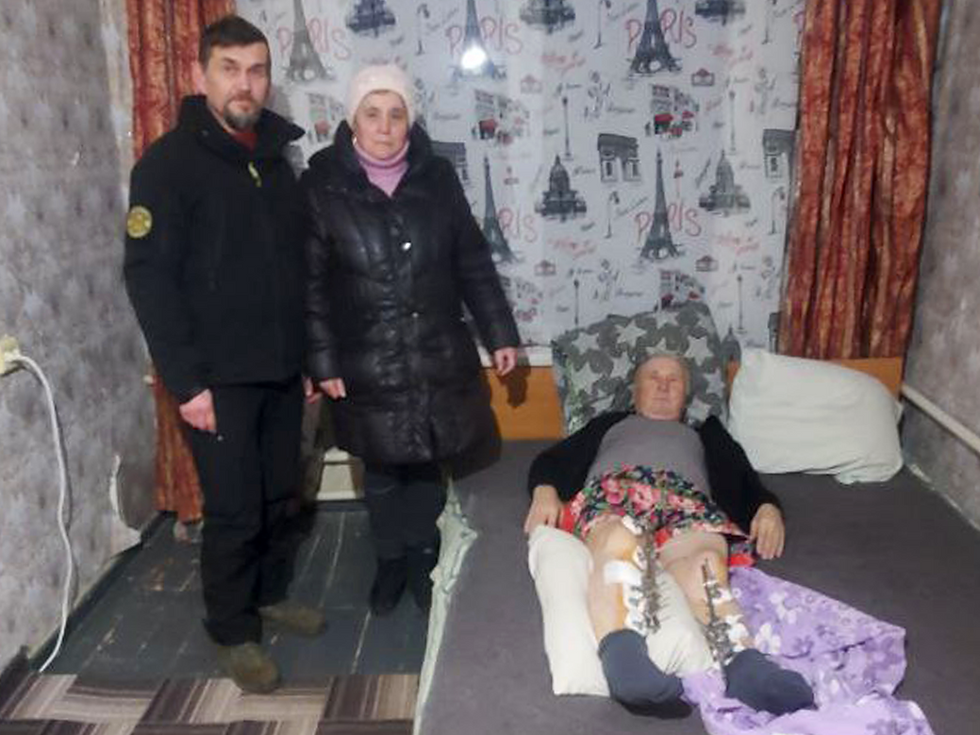Mykola's story
- office76041
- Jan 20
- 2 min read
Once, on New Year's Eve, Mykola, a resident of Dvorichne, went to visit a friend. His friend was left without a wife, eating only peas and beans, and so on... Mykola took a jar of tomatoes, bacon, and, of course, bread and bacon. After all, New Year's Eve is a holy occasion. He got ready to visit, and on his way back, Mykola met a Russian drone.
It didn't matter that he was in his seventies and had never been in the military. The “heroic” Russian drone pilot did not spare Mykola.

The explosion contused the man, and shrapnel hit his legs so much that he lost a lot of blood from his heart. Mykola would not have celebrated the New Year if his friend hadn't come running to find out what the drone had done.
He waited for four hours for medical help, but first the soldiers helped Mykola by putting splints on his injured legs. They only asked him to return the tires when the need for them passed, as they no longer had any. Then he was taken to Kupyansk, where qualified specialists fought for his life. Mykola regained consciousness only a day later in the Kharkiv Regional Hospital.
Kharkiv doctors tried to save him for almost a month. Fortunately, they succeeded.
At the moment, Mykola is still bedridden, his legs are fixed with the Elizarov apparatus, but the prospect of recovery is quite reliable.
However, now the next dilemma arises: how to bring a patient in such a situation from the hospital to his home. Especially with the critical shortage of ambulances and the fact that the patient lives 120 kilometers away in the countryside. It should also be added that Mykola is a corpulent man, as they say, and his unhealed wounds cause him severe pain with every careless movement.
This is where the medical and evacuation crews of the "Volunteer - 68" team come in handy, as they make their flights on a daily basis.
Just transferring a person in this condition from a hospital bed to a medical gurney is no longer a challenge. It is technically, physically and emotionally difficult. Getting such a patient to their destination on war-torn roads is also not easy. However, lifting him on a soft stretcher up several floors, through stairwells of the Soviet design that were not adapted for this purpose, without causing him pain, is a task on the verge of being impossible.

It was difficult to transport Mykola, but the experience and goodwill of the "Volunteer - 68" crew helped to make it as correct and psychologically easy as possible.
For this, the volunteers heard many words of gratitude from Mr. Mykola and his wife Tetyana, as the guys deserved them.
.png)







